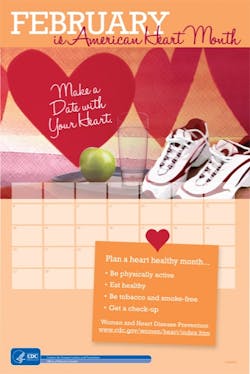Matters of the heart
We must also remember those we love and care about, especially this month. It breaks our hearts to see loved ones suffer, as Maureen Chodaba explains in her story about her parents. It is a very touching story, and I thank Maureen for sharing it with us. The “present-absence” and the long-good-bye of Alzheimer’s disease is truly heart-breaking. Remember the good times.
In closing, I want to tell you about an upcoming conference. The National Center for Dental Hygiene Research & Practice is pleased to host the CE Mini-Conference, "Advances in Practice," which will be held June 12-13, 2012, immediately preceding the ADHA Annual Session in Phoenix. The program will be held at the Arizona School of Dentistry and Oral Health in Mesa, AZ, located about 30 minutes from downtown Phoenix. The registration fee will cover transportation to and from the ADHA convention hotel to the school, as well as breakfast, lunch, breaks, and course materials.
Participants will receive 9 CE credits for participation. Registration is limited to 75 people, so be sure to register early. The preliminary program and registration forms are available on the dhnet (www.usc.edu/dhnet). Please contact Jane Forrest ([email protected]) or Ann Eshenaur Spolarich ([email protected]) for additional information.
Happy Valentine’s Day to all!
Sincerely,
Maria Perno Goldie, RDH, MS
To read previous RDH eVillage FOCUS introductions by Editorial Director Maria Perno Goldie, go to introductions.







